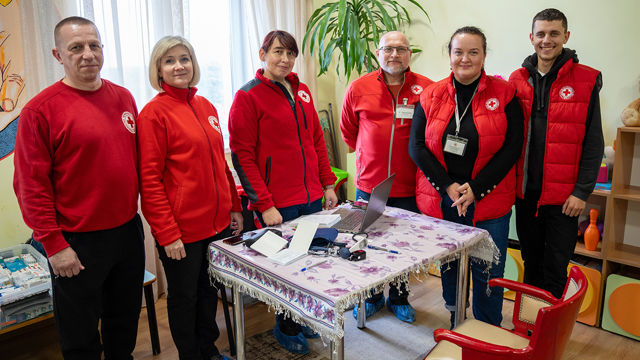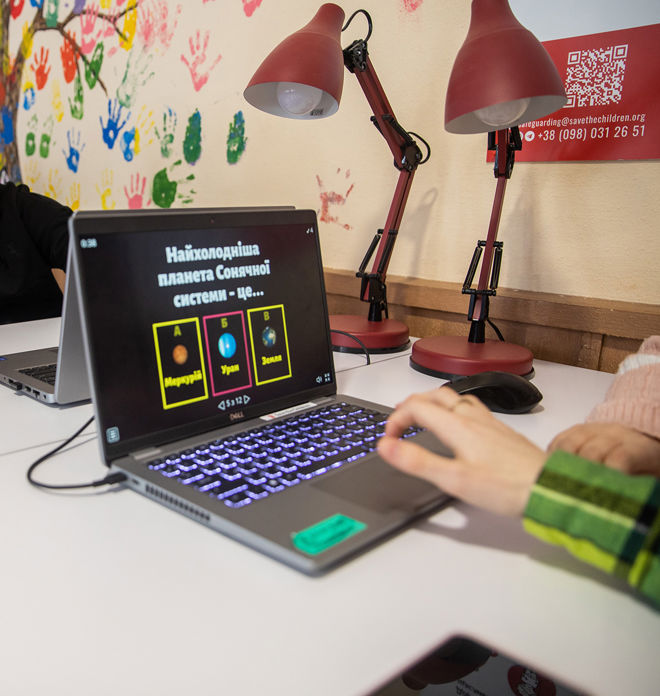Mobile services to reach those who need them the most

Seven mobile health teams prepare to depart to offer people access to health care services in their local communities, November 2023.
The war in Ukraine has made it more difficult for the most vulnerable to access to health and education services. Read how partners in the Nansen Support Programme for Ukraine use mobile teams and digital solutions to help those who need it most.
Mobile health teams offer better access to health services in local communities
Since the full-scale invasion the need for health care has increased in Ukraine. To respond to these urgent needs, the Norwegian Red Cross has supported the Ukrainian Red Cross to create 23 mobile health teams who offer health care services in local communities on a daily basis. The mobile health teams reach those who are most vulnerable, and who otherwise may not be able to seek help.
Volodymyr is a psychologist in the Red Cross’ mobile health team. He has worked as a psychologist for 16 years, the last 1,5 years in the mobile team. Volodymyr says that many are struggling due to the war and are in need of support. It is hard to flee to a place without knowing what life there will be like.
«In your everyday life you know what to do. But when there is a war and you are not prepared, you do not know who can help you.»
Volodymyr, psychologist
Digital learning centres for displaced children
All children have the right to basic education. To help internally displaced children in Ukraine to continue their basic education, Save the Children supports eleven digital learning centres.
Children in Ukraine can often continue their education online, even if they have been forced to flee. The digital learning centres are equipped with computers, tablets and other materials which are needed for the children to be able to take part in the online teaching. Additionally, each centre has two facilitators who can assist the students in the classroom. The facilitators also organise activities to support emotional and social learning through play.

The children learn about the universe at a digital learning centre in Chernivtsi-region.
The facilitators reach out to families with children who have been displaced to the local area with information about the support available and where the digital learning centre can be found. They also inform about the importance of continuing education activities and how the centre can support in the online learning environment.
The results stories on the webpage of the Nansen Support Programme for Ukraine are based on texts produced and shared by the partners of the programme. The stories represent a snapshot of the results achieved to showcase the difference the Norwegian support is making.